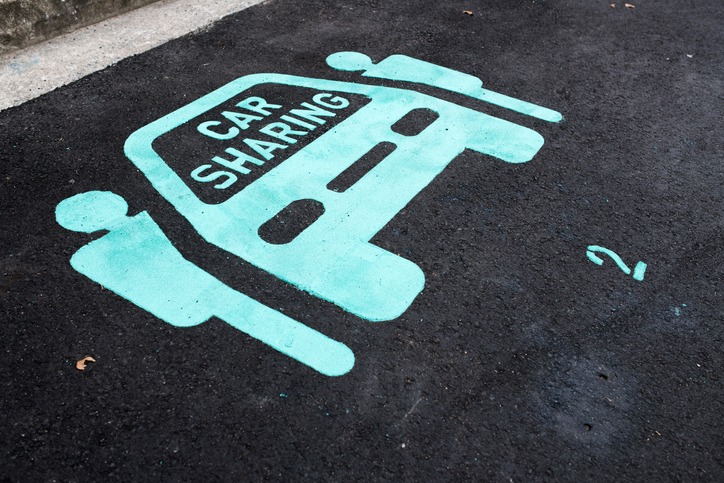
Car-Sharing Insurance – Are You Covered?
Recently, car-sharing has taken off across Canada. You can “borrow” or rent a car for a fee determined by how long you use the car. Some of the most popular car-sharing companies are:
- Car2Go
- EVO (in BC only)
- AutoShare (in Toronto only)
- Zipcar
- MODO
Car-sharing works great if you don’t want to deal with the stress (or expense) of car ownership, including parking, maintenance and all those other fees that add up over time. Plus, less vehicle ownership is great for the environment and for reducing traffic congestion.
Generally, these car-sharing services charge a per minute or per hour or per day fee. Some also charge a membership fee. Your parking, insurance, and fuel can be included by some companies, but for other’s, you’re still responsible for covering some of these expenses.
But what happens if you’re involved in an accident? Are you covered? Will you be paying out of pocket to repair the car-sharing vehicle or for injuries?
Car-Sharing Insurance
The company providing the car-sharing service also supplies insurance. It’s generally included as part of the rental cost, although it may be an additional fee (for example, Car2Go charges a $1 fee for insurance each time you rent a car). This coverage is generally centred around third-party liability insurance: covering the costs associated with property damage and injuries if you cause an accident behind the wheel of your car-sharing vehicle. However, there are some conditions:
- You must be in compliance with the terms and conditions of the service
- You must have been the one driving (if using your account)
- Your driver’s license is valid
- You are responsible for a deductible (usually $1000)
- You notify the car-sharing service immediately of any incident
You may also be held liable for any excess losses that exceed the insurance coverage offered by the car-sharing service. What does this mean? If your car-sharing service covers $1 million in third-party liability but you’ve caused an accident that has caused $2 million in damages and injuries (including legal expenses if you’re sued), you’d be on the hook for the extra $1 million not covered. That’s why continuing to have personal car insurance can be a good idea, depending on the amount of protection provided by the car-sharing service.
What if you’re not at fault? In that case, the driver who is at fault should have third party liability insurance to cover these expenses.
Additional Car-Sharing Insurance Coverage
Regular users of car-sharing services could benefit from additional third-party liability insurance. This can help you cover the gap between what the car-sharing service will cover and the true cost of an at-fault accident. Like the example above, if the car-sharing service provides $1 million in third-party liability protection but all the costs add up to $2 million… you’d definitely hope you had your own third-party liability insurance to protect yourself financially!
Car-sharing insurance Vs regular car insurance:
Here are some key distinctions:
Usage Basis:
Regular Car Insurance: Designed for personal vehicles used for everyday commuting, personal errands, and leisure.
Car-Sharing Insurance: Tailored for vehicles used in car-sharing programs where multiple individuals use the same vehicle for short periods.
Coverage Duration:
Regular Car Insurance: Typically covers the vehicle consistently throughout the policy term.
Car-Sharing Insurance: Coverage is often specific to the duration of the car-sharing activity, providing protection during the times the car is actively shared.
Flexibility:
Regular Car Insurance: Geared towards individual vehicle owners for personal use.
Car-Sharing Insurance: Adapts to the dynamic nature of car-sharing, allowing coverage when different individuals are driving the same vehicle.
Risk Factors:
Regular Car Insurance: Assess risks based on the individual owner’s driving history, location, and personal factors.
Car-Sharing Insurance: Considers the increased risk associated with multiple drivers and frequent use, often adjusting premiums accordingly.
Ownership Structure:
Regular Car Insurance: Covers vehicles owned by an individual or a family.
Car-Sharing Insurance: Addresses the unique challenges of shared ownership and shared usage models.
Policy Structure:
Regular Car Insurance: Policies structured for personal vehicles, with considerations for comprehensive, collision, liability, and other standard coverages.
Car-Sharing Insurance: Tailored policies that may include specific provisions for multiple drivers, usage timeframes, and liability distribution.
Cost Considerations:
Regular Car Insurance: Premiums are influenced by personal factors, driving record, and the vehicle’s characteristics.
Car-Sharing Insurance: Premiums may reflect the shared risk and increased frequency of use, potentially leading to different cost structures.
It’s essential to carefully review the terms and conditions of any insurance policy, whether regular or car-sharing, to ensure it meets the specific needs and circumstances of the vehicle’s use.
Talk to one of our brokers to learn more about car-sharing insurance and third-party liability. It’s always better to know what your options are and be prepared before an accident happens.
Exploring Regular Car Insurance for Alberta Residents with Sharp Insurance
If you call Alberta home and are in search of reliable regular car insurance in Alberta, Sharp Insurance has you covered. Take a closer look at the following pages to discover more about our comprehensive coverage options:
- Tailored insurance solutions designed for Calgary residents.
- Personalized coverage for your everyday commuting needs.
- Comprehensive insurance plans crafted with Edmonton residents in mind.
- Protection that aligns with your unique driving requirements.
